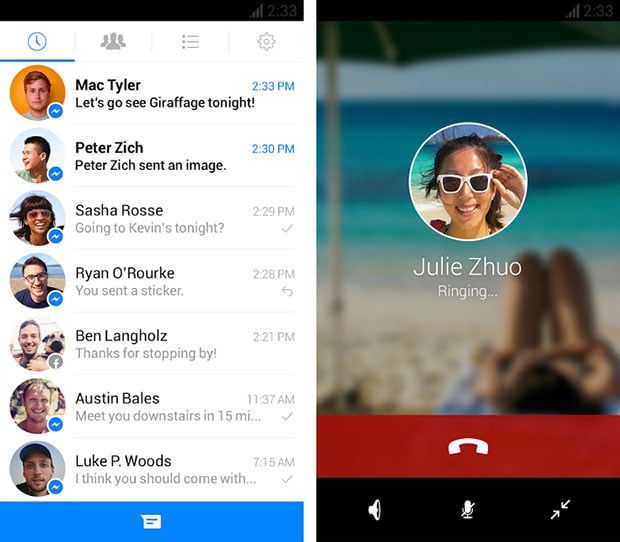Facebook Responds To Claims That Messenger SMS Functionality Violates Google Play Rules
Have you ever noticed that when a service becomes almost incomprehensibly large, it can begin to care less and less about what people think about it? Some might feel that way about Facebook, a company that time and time again has forced changes on its users that haven't been very well received.
A major example of this in recent years has been with the forced transition to Facebook Messenger, something that caused thousands of users to give the app a 1-star rating for. Simply put, people were not happy. As that move happened a couple of years ago, we don't hear too much about the hate anymore, much like we don't hear much about the angst held towards Google for shutting down Reader. It could be true: time heals all pain!

Since Facebook decided to force users to move to Messenger, it's mulled the idea of inserting advertising into the platform, and also adding potentially useful chat bots to it as well. Now? Now the company wants to take over our SMS needs as well, leading to a big question being asked: is Facebook breaking a Google rule with its rollout?
The fact that Facebook wants to handle SMS isn't in itself a big deal; the big deal comes with how the company is trying to get people to replace their default SMS app with Messenger. One Twitter user, Amir Efrati, became a little upset when offered to use Messenger for SMS without an option to refuse. The shot can be seen in the embedded tweet below:
VERY aggressive prompt by Facebook to add SMS to @messenger. Ain't no "No" button. A violation of Google Play rules? pic.twitter.com/7tZzAE5MGh
— Amir Efrati (@amir) June 20, 2016
In a response to Engadget, Facebook gave some not-so-useful information: "SMS in Messenger is an optional feature. People can choose whether or not they wish to use it. When they first see the prompt, they can choose to start seeing their SMS messages in Messenger by turning on the feature, or they can decide not to by tapping 'Settings.' If they decide to see SMS messages in Messenger and to also reply to messages from Messenger, we'll ask people to approve any new device permissions that are required. Messenger doesn't modify any device settings without people agreeing to it."
While some are sure to see SMS integration with Messenger as very useful, all this move will do for others is reignite the ire that erupted during the forced move to Messenger all those years ago. But again, does it matter to Facebook, when it can control so much, regardless of backlash?

